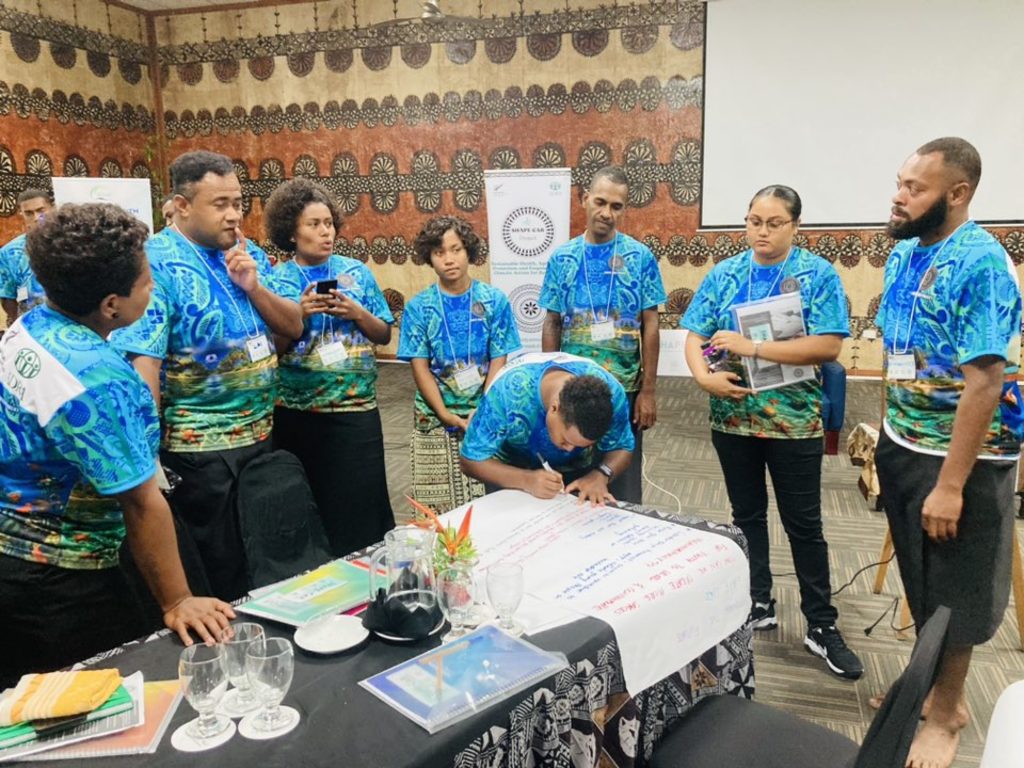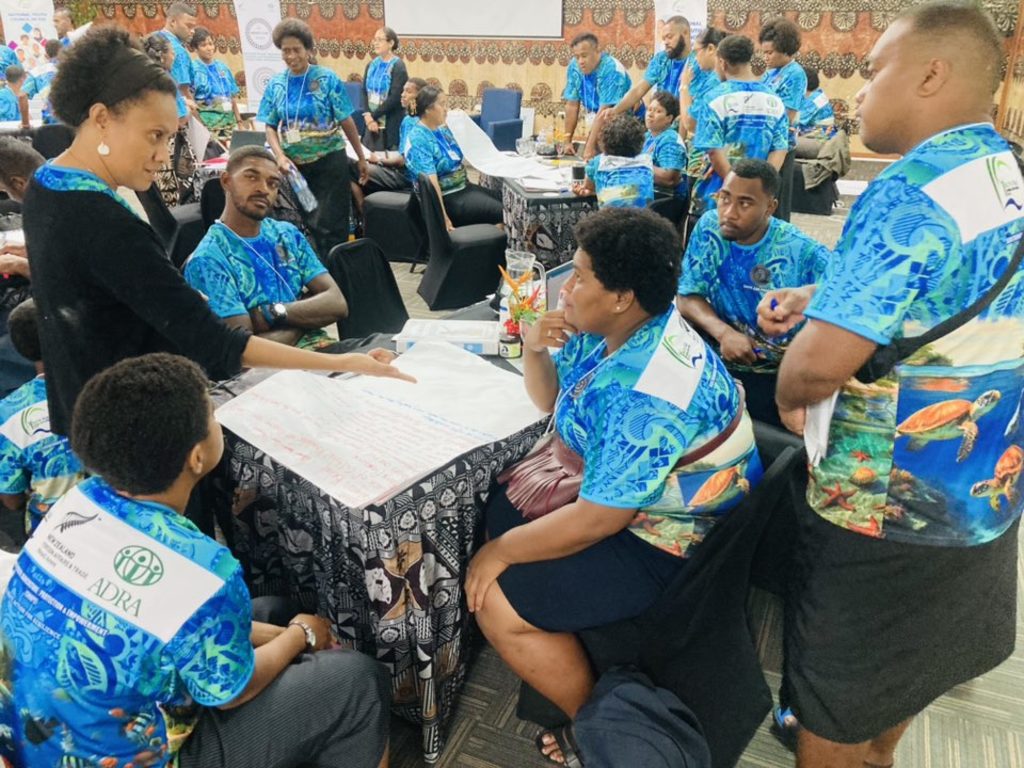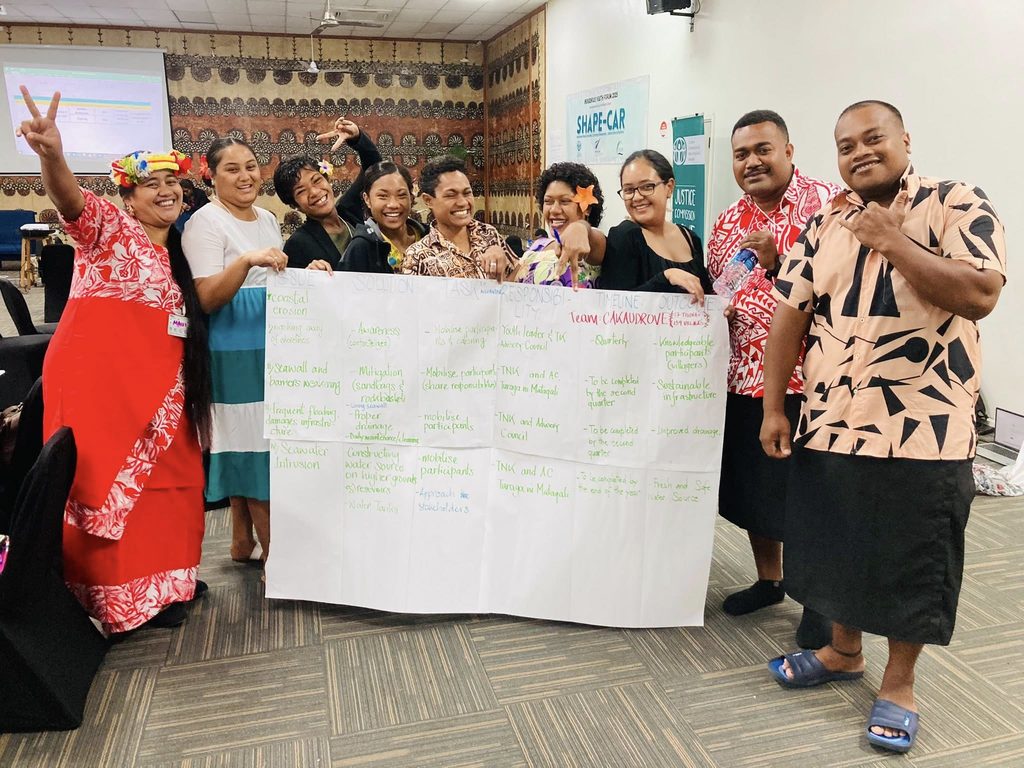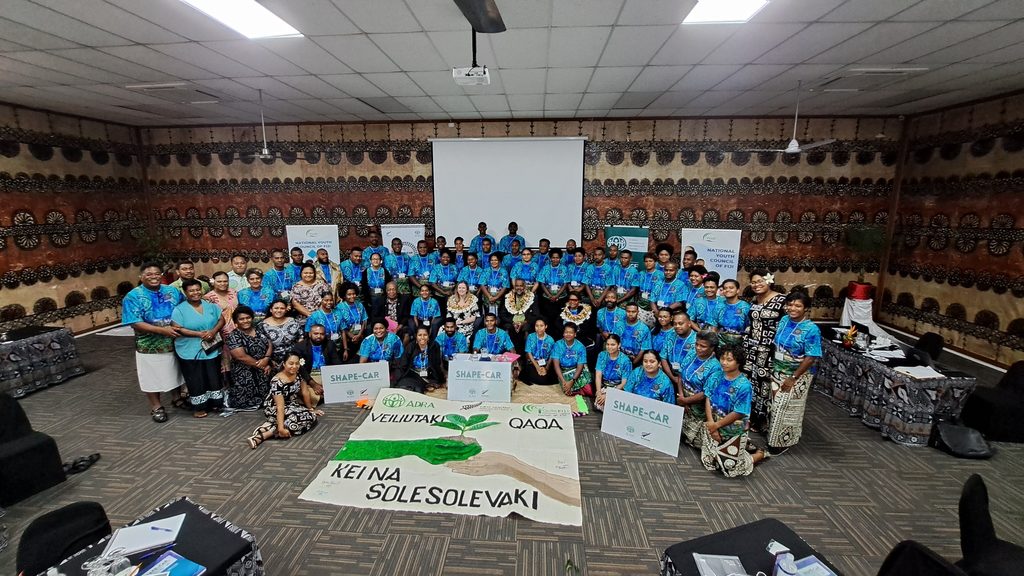DESPITE the formidable challenges of climate change, the iTaukei people possess an inherent and profound spirit of resilience, built on generations of adapting to their environment.
Those were the words of the iTaukei Affairs Board Manager Resources, Ifereimi Naqumu at the Indigenous Youth National Forum held at Studio 6, Suva, last week.
“This inherent capacity for adaptation is not merely a historical footnote but a living, active force,” he said.
“The narrative of Fiji’s encounter with climate change is not solely one of vulnerability, it is equally a story of the remarkable capacity of the iTaukei people to respond, innovate and endure.”
He said that perspective reframed the iTaukei community not as passive recipients of aid, but as active agents of their own solutions, a crucial understanding for inspiring and empowering youths.
Fijian youths are already on the frontline of climate change, leading impactful initiatives across the country.
The forum convened under the Sustainable Health, Agriculture, Protection and Empowerment (SHAPE) Climate Action for Resilience (CAR) Project is an initiative funded by the New Zealand Ministry of Foreign Affairs and Trade (MFAT) as a part of its $NZ1.3 billion climate finance commitment for 2022 to 2025.
In her address, New Zealand High Commission counsellor, Rachel Bennett praised the forum as a vital platform for indigenous youth to “shape climate policy” and “lead community-based solutions”.
“This forum represents a significant moment,” Ms Bennett said.
“It brings together the voices of young people – those who are not only the leaders of tomorrow but who are already shaping the decisions and actions of today.”
Hosted in partnership with ADRA Fiji, the iTaukei Affairs Board and National Youth Council of Fiji, the event brought together young leaders from the 14 provinces in Fiji.
The forum’s themes Cultural Resilience, Youth-Led Innovation, Natural-Based Solutions and Inclusive Participation reflected a growing recognition of the role young people play in climate leadership.
The event provided a space for intergenerational dialogue, where elders shared traditional knowledge and the youths contribute fresh ideas and a sense of urgency.
According to ADRA the participants explored the urgent impacts of climate change across the Pacific, including rising sea levels, coastal erosions and extreme weather patterns.
The youth forum was guided by two SHAPE-CAR initiatives – solesolevaki and veiliutaki qaqa.
Nadogo District Youth Council president and Macuata Provincial Youth Council representative, Talei Silibaravi said one of the most powerful lessons she learned from the forum was the importance of knowing who they were as indigenous people.
The 33-year-old said before youths could advocate or lead, they needed to be rooted in their identity — understanding their traditional roles and embracing their cultural knowledge systems.
“It was important for us to have this platform to share our stories as initiatives,” she said.
“Our shores are constantly changing. We are losing our ecosystem…when we go to fetch kai (freshwater mussels), it’s no longer accessible because of the heavy rain we experience.
“We don’t get seasonal fruits and vegetables as we should because of the change in climate.”
Unpredictable weather patterns have heavily affected not only food systems but also people’s way of life.
“There is a lack of information, tools and platforms for us youths to raise our voices in,” Silibaravi said.
“Climate change is not just about the environment being affected, it threatens our identity, our culture, traditions and most importantly our livelihood.”
She said the youth forum allowed participants to share their experience and voice their concerns about climate change and what it was doing to their communities.
“What stood out the most for me was seeing and witnessing many young indigenous voices coming together as one – we needed that.
“There was a strong sense of solidarity and shared purpose. Hearing others speak in their own dialects, share their traditional knowledge and connect it to climate justice was both empowering and emotional.
“It reminded us that we are not alone, and our indigenous values are not outdated — they are also solutions.”
The key outcome of the indigenous youth forum was the Fiji Indigenous Youth Climate Declaration.
The declaration is a youth-led document that will inform national climate discussions and policy development.
“The declaration is more than just a document, it’s a commitment and a call to action,” Silibaravi said.
“As a young indigenous woman who has presented my community regionally and internationally, the declaration represents our collective voice, our hope and our right to lead in spaces that have ignored us.
“Its a start and we are grateful for it. This also means our stories, our solutions and our struggles are valid. We are claiming space not as victims, but as knowledge holders and protectors of the land, ocean and our culture.”
The youth day forum was from June 11 to June 13.
A group discussion during the youth forum.
Picture: NATIONAL YOUTH COUNCIL OF FIJI

Youth leaders and representatives aged between 19 to 35 were from the 14 provinces. Picture: NATIONAL YOUTH COUNCIL OF FIJI

Indigenous youth participants with their presentation. Picture: NATIONAL YOUTH COUNCIL OF FIJI



